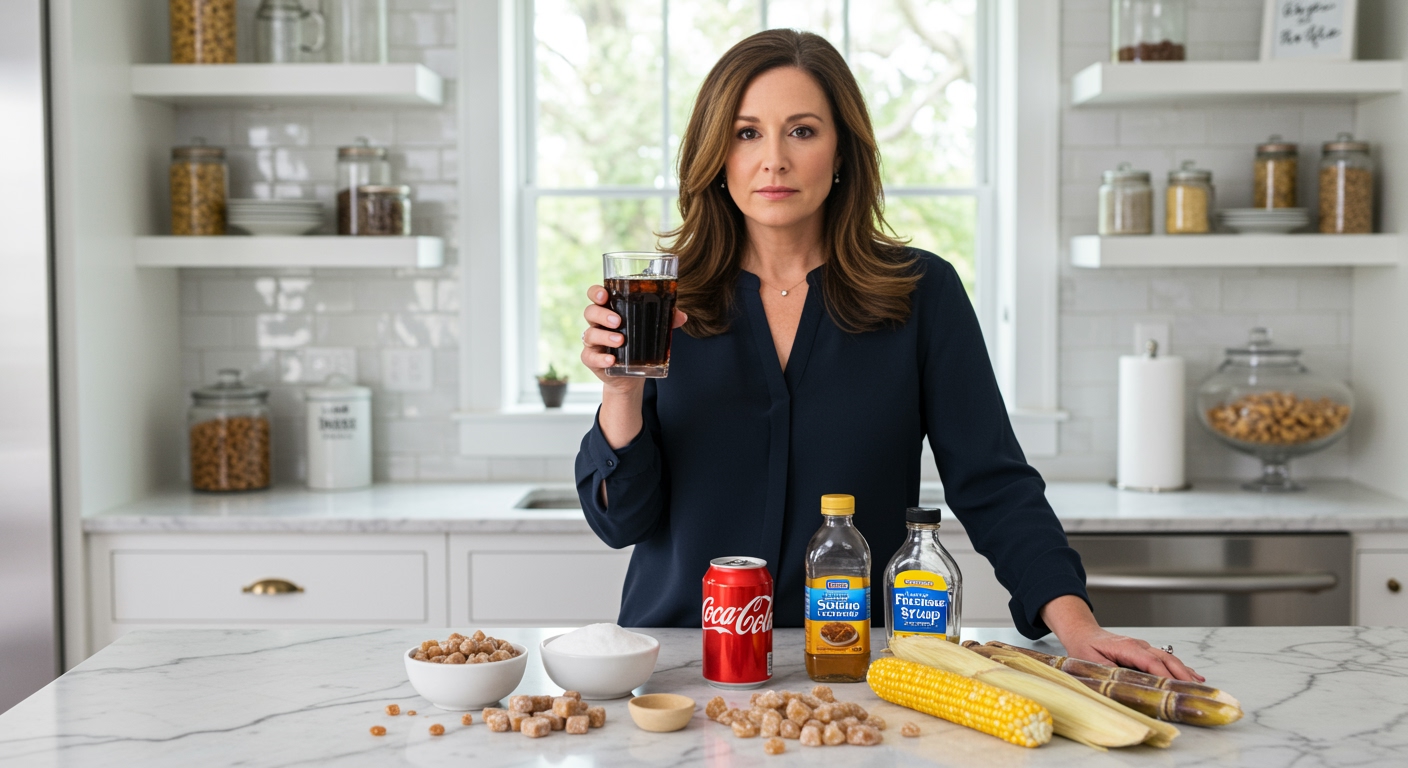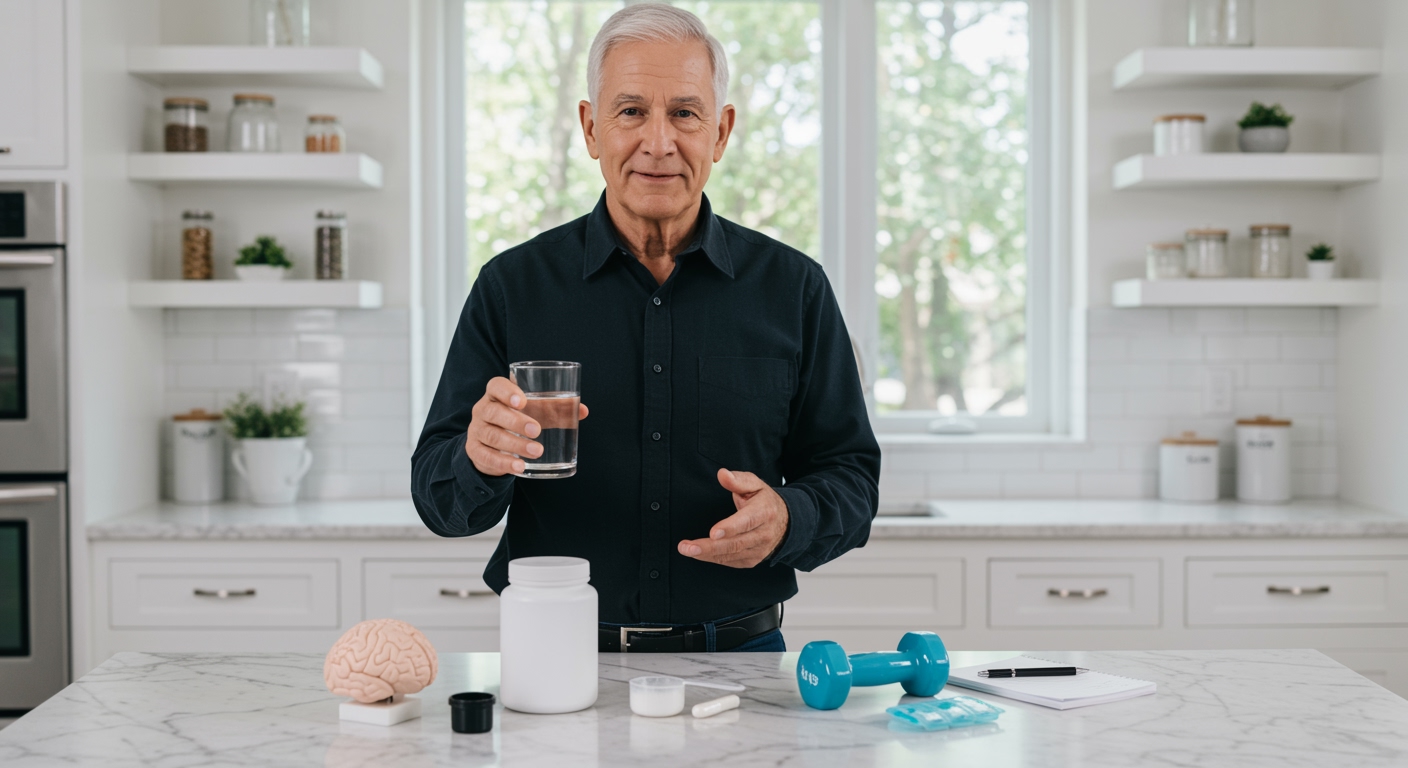✪ Key Highlight: Coca-Cola’s switch from corn syrup to cane sugar offers no real health benefits according to nutrition experts.
Introduction
Coca-Cola just announced a major change that has health-conscious consumers buzzing with excitement.
The beverage giant will launch a new version of its iconic soda in the United States using cane sugar instead of high-fructose corn syrup.
Hi, I’m Abdur, your nutrition coach and today I’m going to analyze this Coca-Cola sweetener switch and reveal why it won’t make your soda any healthier.
What Makes This Switch Different From A Health Perspective?
The truth about this sweetener swap might surprise you more than you think.
Both cane sugar and high-fructose corn syrup contain nearly identical amounts of glucose and fructose.
Cane sugar consists of about 50 percent glucose and 50 percent fructose bonded together.
High-fructose corn syrup contains approximately 55 percent fructose and 45 percent glucose in separate molecules.
This tiny 5 percent difference in fructose content creates virtually no meaningful health distinction between the two sweeteners.
Jennifer Temple, director of the Nutrition and Health Research Laboratory at the University at Buffalo, confirms that both sweeteners have the same calorie content and are almost identical biochemically.
Your body processes both sweeteners through similar metabolic pathways once they reach your digestive system.
✪ Fact: Your liver cannot distinguish between fructose from cane sugar versus corn syrup once digestion begins.
Does Scientific Research Support Health Claims About Cane Sugar?
Multiple scientific studies have examined the health effects of both sweeteners with surprising results.
A comprehensive 2022 meta-analysis published in Frontiers in Nutrition compared high-fructose corn syrup and cane sugar across multiple health markers.
Researchers found no significant differences in body weight, waist circumference, body mass index, cholesterol levels, or blood pressure between people consuming either sweetener.
The only measurable difference was slightly higher CRP levels, an inflammation marker, in people consuming high-fructose corn syrup.
However, this small difference in inflammation does not translate to meaningful health improvements when switching to cane sugar.
The American Medical Association stated in 2023 that there is insufficient evidence to restrict high-fructose corn syrup use in foods.
This position reflects the current scientific consensus that both sweeteners pose similar health risks when consumed in typical amounts.
✪ Pro Tip: Focus on reducing total added sugar intake rather than switching between different types of sweeteners.
How Does Fructose Processing Affect Your Health Regardless Of Source?
Understanding how your body handles fructose reveals why the sweetener source matters less than the total amount consumed.
Unlike glucose, which can be used by cells throughout your body, fructose metabolism occurs almost exclusively in your liver.
When you consume large amounts of fructose from any source, your liver converts excess fructose into fat through a process called lipogenesis.
This fat production can lead to fatty liver disease, insulin resistance, metabolic syndrome, and type 2 diabetes over time.
The rate of non-alcoholic fatty liver disease has increased dramatically over the past thirty years as sugar consumption has risen.
Hope Barkoukis from Case Western Reserve University notes that the slightly higher fructose content in corn syrup may contribute to increased appetite and liver disease risk.
However, she emphasizes that limiting consumption of both sweeteners remains the most important factor for protecting your health.
✪ Note: Your liver processes fructose the same way whether it comes from cane sugar or corn syrup.
What Do Nutrition Experts Really Think About This Marketing Move?
Registered dietitians and nutrition researchers view Coca-Cola’s sweetener switch with healthy skepticism.
Avery Zenker, a registered dietitian, explains that despite minor differences in chemical structure and metabolism, both sweeteners have similar health impacts when consumed in excess.
The real problem is not which sweetener companies use, but how much added sugar people consume daily through sweetened beverages.
Many experts believe this switch represents a marketing strategy designed to appeal to health-conscious consumers rather than a genuine health improvement.
The perception that cane sugar is more natural and less processed drives consumer preference, even though both sweeteners undergo significant processing before reaching your soda.
Jennifer Temple suggests that using cane sugar might actually benefit public health by making sodas more expensive, potentially reducing consumption.
If higher prices lead people to choose water or other healthier beverages, the switch could have positive effects despite offering no direct health benefits.
✪ Pro Tip: Read ingredient labels carefully because marketing claims often overshadow actual nutritional differences.
The Bottom Line
Coca-Cola’s switch from high-fructose corn syrup to cane sugar will not make their soda healthier for you or your family.
The sweetener source matters far less than the total amount of added sugar you consume daily.
I encourage you to share your thoughts about this sweetener switch in the comments below and let me know if you have questions about making healthier beverage choices.
References
At NutritionCrown, we use quality and credible sources to ensure our content is accurate and trustworthy. Below are the sources referenced in creating this article:





